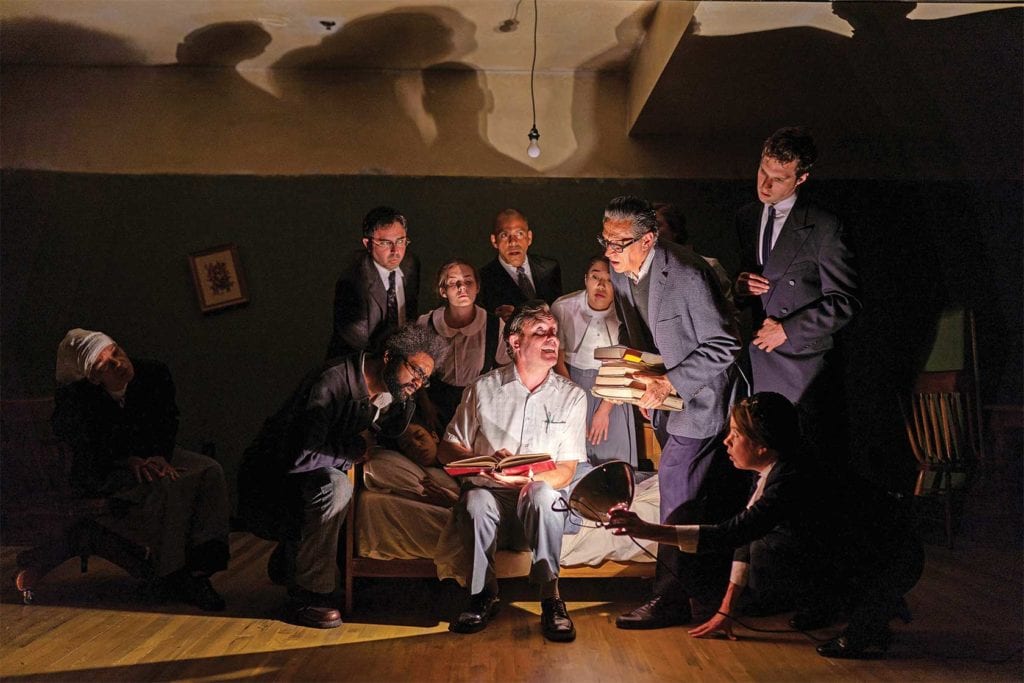‘The Crucible’
Central Square Theater adaptation is humorous, unsettling

Through Oct. 20, The Nora Theatre Company and New York based Bedlam are reimagining Arthur Miller’s classic “The Crucible” on the Central Square Theater stage in Cambridge. This production highlights the absurdity and humor of the dark human nature Miller exposes. Though it’s often laugh-out-loud funny, it retains the chilling reality that this has happened before and could easily happen again.
If it’s been a while since your mandatory high school reading of the piece, Miller’s play explores the Salem witch trials of 1692 when teenage girls framed countless residents of the town for witchcraft, while mostly acting on personal vendettas. What starts as a game for the girls ends up sweeping the town and neighboring areas into a religious fervor that ends many lives with a noose. At a crucial turning point in the play’s second act, the judge who is sentencing townspeople to death admits that he must continue in order to retain his own pride and good name. Justice, if it was ever really in play, is thrown to the dogs.
Miller wrote the play during 1950s McCarthyism when a similar life-threatening zeal possessed the American public. This fact is alluded to in the character of Reverend Hale, played by Eric Tucker, who also directs the show. In his clean haircut and short-sleeved button-down, he radiates a “wholesome” self-righteousness by ’50s standards.
The diverse casting allows actors of color to embody roles other than Tituba the Caribbean maid (finally). In fact, Dayenne Walters, who plays Tituba, also portrays Rebecca Nurse and Francis Nurse, portraying each character with unique ease despite minimal costume and scene changes. Ryan Quinn plays a moving John Proctor, a townsman struggling with the pitfalls of morality when his former lover accuses his wife, Elizabeth Proctor, of witchcraft in a fit of revenge. Susannah Millonzi, who plays Elizabeth Proctor, flawlessly translates the outdated ideal of a “good Christian woman” into contemporary standards. She’s calm and logical and willing to set aside her own feelings for the man she loves.
“The Crucible” runs almost three hours, but it flies by in rapid dialogue and compulsive stage movements. Though the story is dramatized, partially fictionalized and told with high humor in this adaptation, viewers watch the show with the underlying reminder that these events (or some version of them) happened just up the road. It’s also a timely reminder that Massachusetts wasn’t always, and perhaps still isn’t, the liberal paradise we might like it to be.









